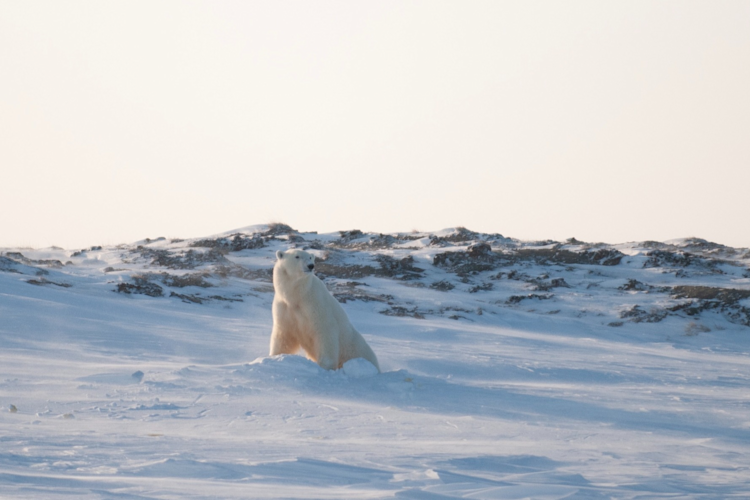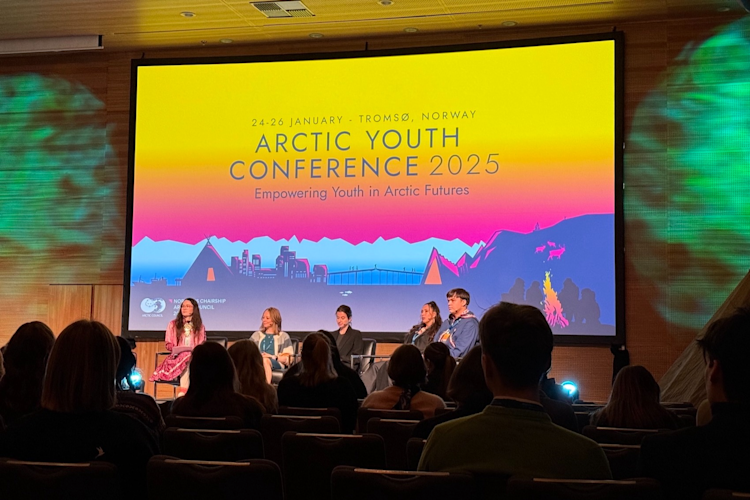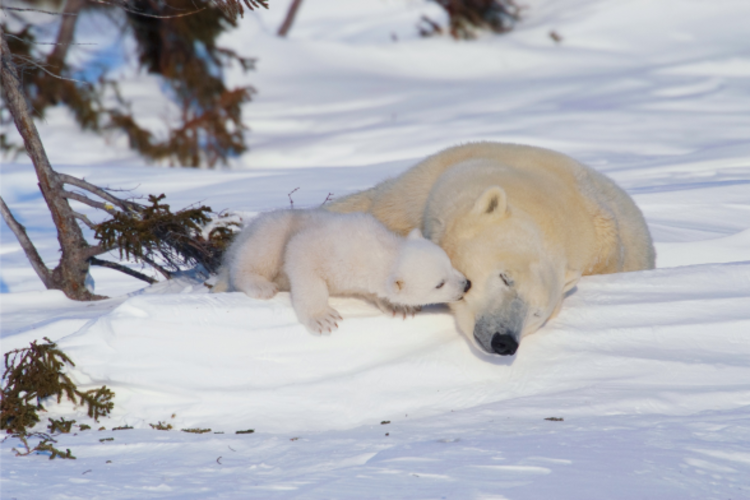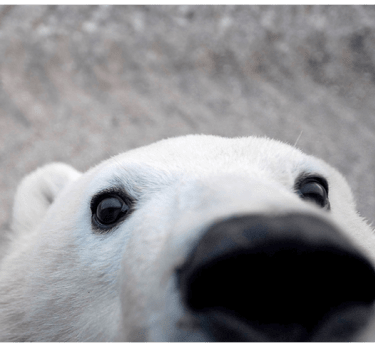The fast-paced changes in the U.S. political landscape are already having consequences for polar bears, their habitat, and organizations like Polar Bears International. This shifting support for research and habitat protection is already having an enormous impact on polar bear conservation.
Here are the issues we’re tracking, and why we’re concerned:
Polar Bear Habitat
What’s at Stake
The denning period is the most vulnerable period in the polar bear’s life cycle. Proposed changes would greatly reduce protections for polar bears’ denning habitat on land, and could increase the risk of oil spills in their sea ice habitat.
Issues We’re Tracking
Endangered Species Act (ESA)
A proposal would change the interpretation of "harm" under the ESA to exclude habitat loss. This would remove protections for polar bear denning habitat in Alaska. The proposal received over 300,000 public comments. See our response here.
Oil and gas expansion in the Arctic
Arctic National Wildlife Refuge — In the final tax bill, Congress is requiring four additional oil and gas lease sales in Alaska’s Arctic National Wildlife Refuge over the next 10 years. Development in this area would impact polar bears during their vulnerable denning period.
Offshore oil and gas — The U.S. government has initiated planning to develop a new schedule for offshore oil and gas lease sales on the U.S. Continental Shelf, including in the Beaufort Sea, Chukchi Sea, and the "High Arctic". Development in this area could further threaten polar bear habitat. A recent public comment period requested information from interested and affected parties. See our response here.
Climate Research and Solutions
What’s at Stake
For decades, the U.S. has been a world leader in sharing solid, long-term climate data. This information is vital not just for polar bears, but for everything from weather forecasts to agriculture, and for understanding the impacts of a warming climate. Today, both future data collection and historical information are in danger.
Issues We’re Tracking
Loss of climate data
Cuts to staffing and budgets at agencies that deal with climate change, like NASA and NOAA, are already reducing access to sea ice and climate data for Alaska and beyond, weakening our capacity to understand global warming and to prepare for its consequences.
Blocked state-level climate policies
An Executive Order from April 2025 aimed to block the enforcement of state laws passed to reduce the use of fossil fuels and tackle climate change.
Polar Bear Research
What’s at stake
So much of what we know about polar bears—and how to protect them—comes from researchers conducting fieldwork and working with data and samples that have been collected during long-term projects. The cuts and policy changes that are happening right now are likely to push researchers out of the profession, reduce or eliminate future fieldwork, and make it harder to work with existing sets of data and samples.
Issues We’re Tracking
Federal government layoffs
Federal cuts have a particularly large impact on polar bear research—because studying them is expensive and difficult, federal leadership on polar bear research has been crucial to maintain field work and monitoring efforts.
The entire biological research program at USGS—the key agency which oversees the US polar bear research team—is proposed for a shutdown.
The Marine Mammal Commission, which provides scientific advice on protecting marine mammals including polar bears, is proposed for elimination.
Funding for research and students
The future of polar bear research depends on today’s students and early-career scientists. That future is in doubt as federal funding is cut and university endowments are threatened.
Loss of data and samples
Decades of data allow researchers to understand how polar bears are responding to climate change. Some of this data has already been decommissioned, meaning it will no longer be available to researchers. Other data, and biological samples, could be lost if they’re not safely archived. Our team is already jumping in to ensure irreplaceable samples are preserved and available.
Conservation Organizations Like PBI
What’s at Stake
Nonprofit organizations play a vital, but often hidden, role in civil society. Many of the public goods we take for granted, from protected areas to strong civil rights protections, came about because of the endless work of civil society organizations working with, and on behalf of, citizens.
For example, Polar Bears International:
Leads cutting-edge research that informs global polar bear conservation and policy—advancing den detection, energetics, and population monitoring.
Serves as a trusted convener and collaborator, aligning partners across disciplines and providing critical gap funding to accelerate impact.
Reaches and inspires millions through educational broadcasts, live cams, a top-ranked website, zoo and aquarium partners, and Arctic guide engagement.
Elevates polar bears in the climate conversation, advocating for bold, science-based policies that protect sea ice, wildlife, and our planet’s future.
Issues We’re Tracking
Potential attacks on nonprofits
An earlier version of the tax bill would have granted the Executive branch the authority to revoke nonprofit status without due process. Although this troubling provision was ultimately removed from the bill, we are closely watching for similar proposals in future legislation.
What We’re Doing
With your support, here are the actions we’re already taking to counteract these threats to polar bear conservation:
We’re helping to safeguard data that’s in danger of being deleted from government servers and biological samples that could be lost.
We provided science-based opposition to the proposed change to the U.S. Endangered Species Act that would put polar bear habitat in Alaska at risk
We’re committed to keeping you informed on what these developments mean for polar bears, and how you can get involved.
What You Can Do
If you live in the U.S., call your members of Congress every day. The more they hear from constituents the more likely they are to respond.
Talk to friends, family members about your concerns to make the urgency more personal for them.
Support our work—become a Polar Bear Patron or a corporate sponsor.

















